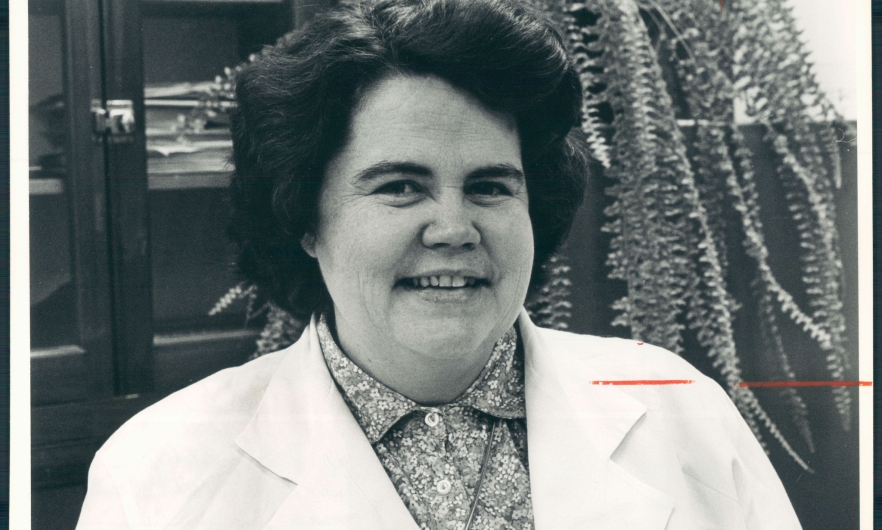Genevieve Matanoski, Longest-Serving BSPH Faculty Member, Dies at 92

Genevieve Matanoski, MD, DrPH ’64, MPH ’62, Professor Emerita in Epidemiology, passed away October 2, 2022. She was 92.
Gene, who joined the Johns Hopkins faculty in 1958 as a research associate in Epidemiology, was the School’s longest-serving faculty member at the time of her death. In 1976, she became the ninth woman at the School to be appointed full professor with tenure. Gene was founding director of the Occupational and Environmental Epidemiology training program from 1978 to 2010, a period when her specialty, the environmental epidemiology of cancer, rocketed to prominence.
Gene was a pioneering thinker, a tireless investigator, and a passionate advocate. She made discoveries and spearheaded projects that made a lasting impact in epidemiology and improved health on a grand scale. Her career and her life are an inspiration, and we are so proud of all that she achieved as a member of the Bloomberg School family.
A fellow of the College of Preventive Medicine and chair of the American College of Epidemiology, Gene was a pioneer in organizing cancer registries to generate the data necessary to find the populations at highest risk and mount preventive interventions. As director of the cancer registries of Maryland and Washington, D.C., she helped to identify geographic cancer clusters and testified to Congress on the dangers of household radon. She also helped to convince policymakers to expand the scope of exposure databases—originally used to enforce industrial pollution regulations—to collect data on how toxic exposures impacted human health. Gene was a dynamic leader in a wide variety of government agencies and other institutes dedicated to protecting public and environmental health. She chaired committees at the U.S. Environmental Protection Agency to review risks from radiation, dioxin, mercury, and arsenic.
Some of Gene’s most well-known discoveries were at the intersection of occupational health, cancer, and environmental exposures. She made major advances in occupational toxicology and epidemiology with her carefully constructed studies of lung cancer in painters, leukemia in telephone linemen, adverse pregnancy outcomes in families of agricultural pilots, and cancer risk from workplace exposures. Some of her most famous work was on committees to evaluate health risks in veterans from wartime exposures. She also teamed with Biochemistry chair Larry Grossman, PhD, to explore the molecular epidemiology of DNA repair, which they identified as a biomarker for skin cancer risk.
Gene earned a bachelor’s degree in chemistry from Radcliffe College in 1951 and an MD from Johns Hopkins in 1955, when she married fellow medical student Carroll Matanoski. She would raise five children while completing both residency training in pediatrics and a doctorate in public health at Johns Hopkins. She saw pediatric patients in the Johns Hopkins Hospital Outpatient Clinics for nearly 50 years.
